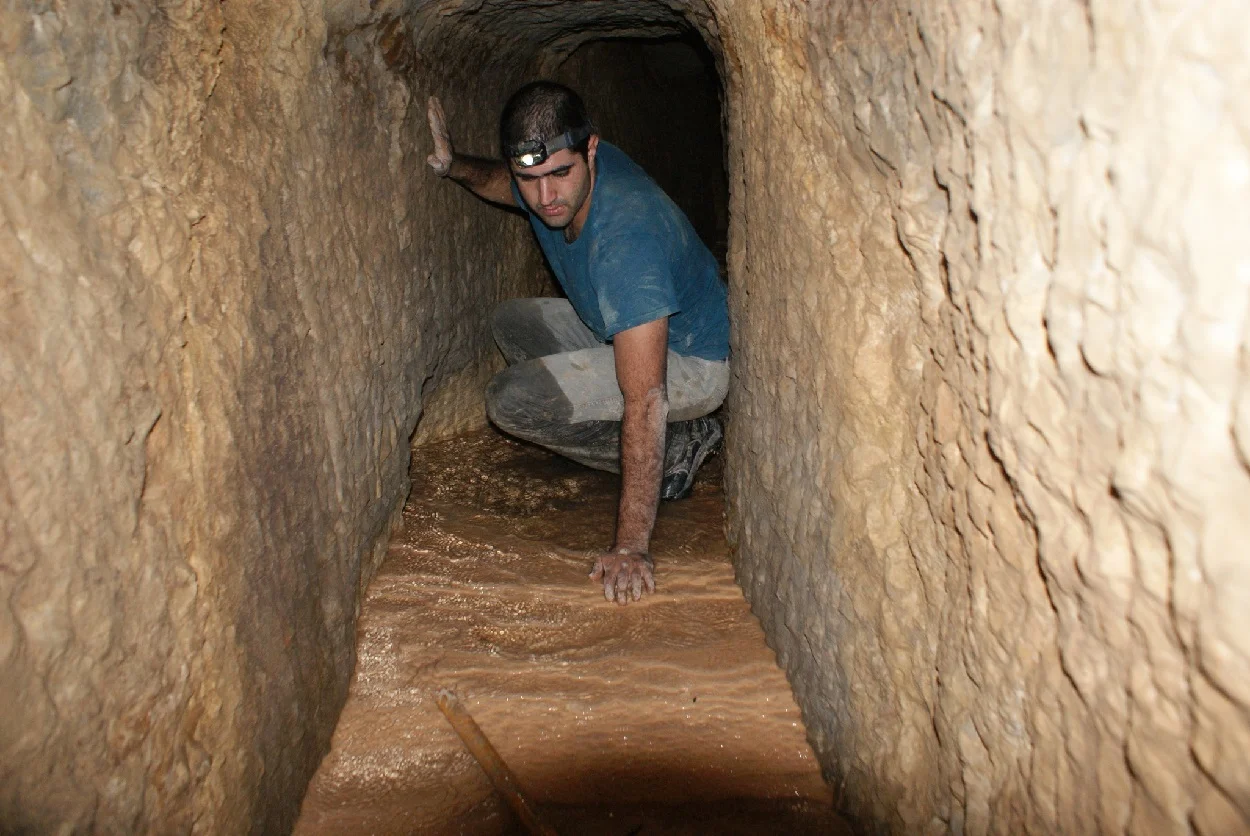Archaeologists from the Institute of Archaeology at the Hebrew University of Jerusalem have uncovered formations of cave pearls during a study of the Ain Joweizeh spring system near Jerusalem.
Ain Joweizeh is a rock-cut subterranean spring that was constructed in the central part of the Naḥal Refa’im Valley, an area abundant with underground springs and cultivated terraces.
It served Jerusalem’s agricultural hinterland as a royal Judahite water system, established sometime during the Iron II B-C (900 BC to 586 BC).
Archaeologists from the Hebrew University of Jerusalem have uncovered cave pearl formations that formed on fragments of pottery and ancient plaster on the floor of the main tunnel—a phenomenon described as the “first of its kind.”

Cave pearls are a rare occurrence of concretions of calcium salts that form concentric layers around a nucleus when water dripping into a cave loses carbon dioxide and precipitates calcite.
The flow of water in the spring provided a rotation to the nucleus in such a way that it becomes evenly coated to form a spherical shape similar to a pearl formed in a mollusc.
According to statement on social media by the Hebrew University of Jerusalem: “Through carbon-14 dating and archaeomagnetic analysis, the researchers discovered that most of the findings belong to the Hellenistic period, presumably due to an ancient tunnel renovation.”
In total, 50 cave pearls have been discovered, some of which have a stacked formation and sheds new light on the spring’s history and the changes in its discharge and environment over the centuries.
Header Image Credit : Hebrew University of Jerusalem
Sources : Department of Archaeology and the Ancient Near East





